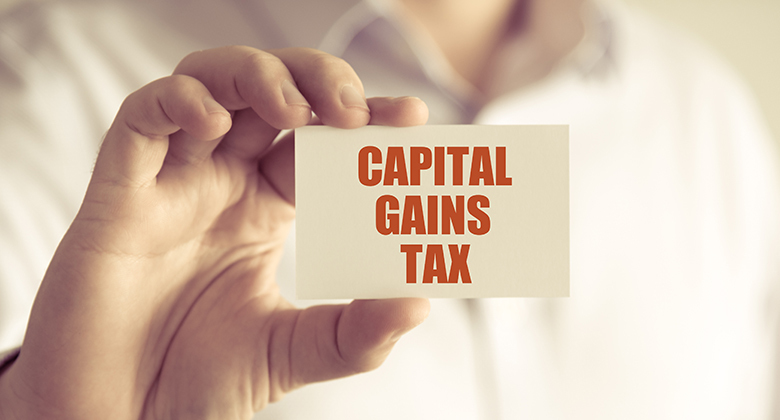Guide to Capital Gains Tax for Landlords

If you’re a landlord, part of your process of planning investments and your next property purchase may involve assessing the potential
for capital gains. Upad has previously produced an analysis of how landlords might assess the potential for capital gains alongside potential
rental yields, which you can read at the below link.
Which Type of Property is the Best Investment?
What is Capital Gains Tax?
Capital Gains Tax is the tax due when you sell an investment that has increased in value. Landlords who invest in property to take advantage
of house price growth will almost certainly have paid capital gains tax in the past, or are likely to have to do so in the future.
It is important to note that capital gains tax rules differ if you are a landlord versus a person who owns one property and lives in it.
The live-in homeowner will usually have to pay no capital gains tax.
GOV.UK – Tax When You Sell Your Home
When you pay capital gains tax as a landlord, you pay tax on the value increase of the asset you’ve sold, not on the total amount
you have sold for.
For example, let’s say you invest in a property worth £200,000. You rent this property out and make a tidy rental yield.
Some years later, you sell the property for £250,000.
As of the 2017-18 tax year, the tax free allowance for capital gains tax is £11,300. This means that you would pay tax on £50,000
minus £11,300, leaving you with a provisional capital gain of £38,700.
As of the 2017-18 tax year, the capital gains tax rate on residential property is 28%.
Therefore, on a provisional capital gain of £38,700, you would pay £10,836, leaving you with a net profit of £27,864.
If this seems like a huge amount of money to pay in capital gains tax, the good news is that you can claim certain reductions, which may
reduce your capital gains tax bill significantly.
GOV.UK – Capital Gains Tax
In fact, you may not even have to pay capital gains tax at all!
What Other Capital Gains Tax Deductions Can Landlords Claim?
As we already noted above, residents who live in the home they own usually don’t have to pay capital gains tax, assuming they meet
all the conditions in the “Tax When You Sell Your Home” advice from GOV.UK.
Do you need Tax advice?
Access Tax and Legal helplines with
the Upad Landlord Club
Find out more
Here are some additional examples of deductions you may be able to claim, in addition to the annual tax free capital gains allowance.
Multiple Property Owners
If multiple people own a property, then although the tax free allowance is applied to individuals, in effect it is multiplied by the number
of owners.
For example, based on the 2017-18 tax free allowance of £11,300, if three buy-to-let investors collectively sold a property after five
years at a capital profit of £30,000, there would be no capital gains tax payable.
If You Have Lived in the Property or Been a Live in Landlord
The amount of capital gains tax payable will reduce if at any time during ownership of the property you have lived there yourself.
This is applicable both to those landlords who live in a property and then move out to let out that property, and to those who become live in
landlords, renting out a vacant room or two in their home.
At the same time, this also means that for resident homeowner’s, capital gains tax may become payable if they have ever rented out a
room in their property, even if they have always lived there themselves.
Improvements to the Property Not Already Claimed as a Tax Deductible Expense
Let’s say you replace the boiler, have cavity wall insulation installed, replace the ceilings, or install a new kitchen or bathroom.
In most cases, landlords will deduct these as tax deductible expenses when completing their annual tax return, but if they don’t they
become allowable expenses against capital gains tax.
Associated Fees When Buying and Selling a Property
Fees associated with buying and selling a property, such as those related to surveyor inspections, solicitors, buy-to-let mortgage brokers,
and estate agents, are another example of where a landlord may make a tax deductible claim on their annual tax return, but that can be deducted
from capital gains tax if they have not already been claimed for.
Reducing Your Capital Gains Tax Bill
As you can see from the list of allowable expenses, while initially it may appear that your capital gains tax bill could be relatively high,
by ensuring you are aware of what you can claim and how to do it, you have the opportunity to significantly reduce your capital gains tax bill
and protect your buy-to-let profits.
Find out if transferring ownership of your property to a limited company can help reduce your tax bill -
Watch our Tax special webinar







